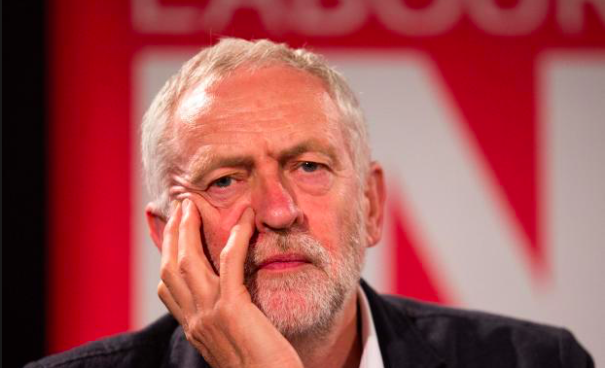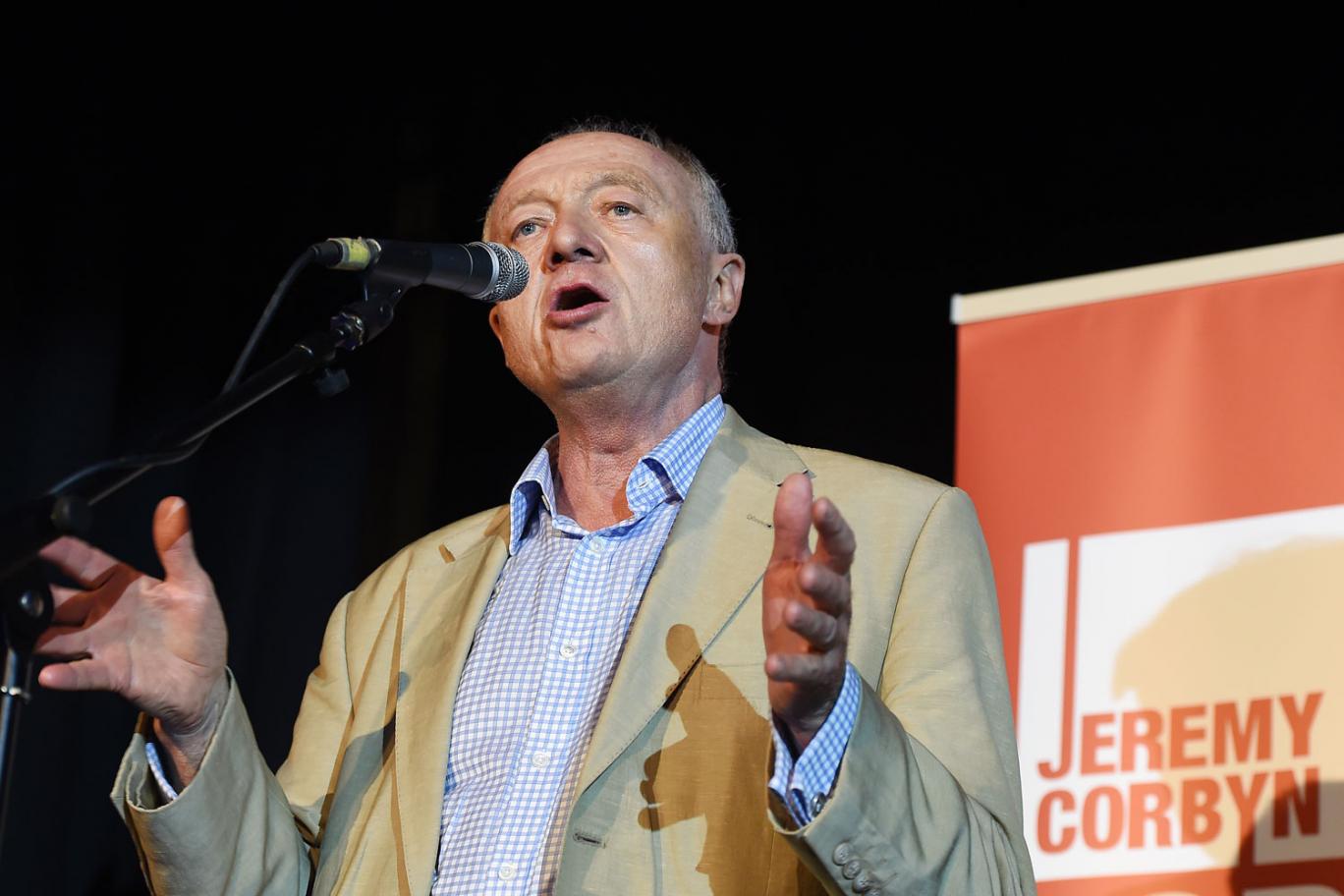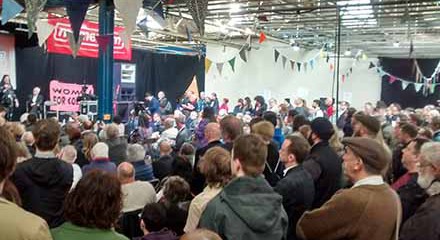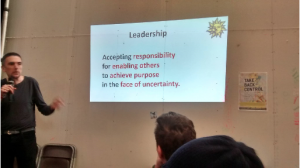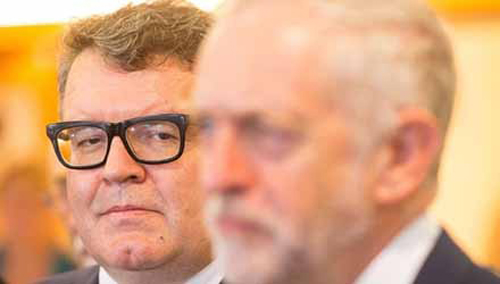Theresa May’s decision to call a snap general election looks more of a no-brainer with each day that passes. The prime minister might have been tempted to let Labour’s right wing continue their wrecking activity until 2020, but that always carried the risk of events intervening at some point – so go for it. Rather just play safe and take advantage of the Labour Party’s weakness – denuded as it is in Scotland, riven by civil war and dogged by dismal poll ratings. It is hard to imagine any Tory prime minister doing anything different.
Of course, various factors affected her decision. One of them being the growing realisation that the Brexit negotiations with the European Union are going to be extremely gruelling. Any delusions about them being a shoo-in have evaporated – reports of the ‘frosty’ No10 dinner with Jean-Claude Junker confirms it.
Another possible, and related, consideration is that Donald Trump seems ready to do a trade deal with the EU ahead of any agreement with Britain following discussions with Angela Merkel – where she purportedly reminded the US president a number of times that he would not be allowed to conduct a unilateral trade deal with Germany. Obviously, Britain is small fry compared to the EU bloc, with the US exporting $270 billion in goods to the EU last year, making it America’s major trading partner – whilst exports to the UK were only worth $55 billion. If Britain does find itself at the “back of the queue” – or not near the front, as Barack Obama warned during the referendum campaign – then the Brexit self-image of Britain as a newly liberated global player cutting ‘free trade’ deals here, there and everywhere is severely punctured. That would put Theresa May in a tricky situation, meaning she needs a solid parliamentary base to weather the inevitable political and economic storm.
At the end of the day though, the prime minister’s calculation was simple – now is the chance to convert a slim majority into an overwhelming one. Don’t dither or dally like Gordon Brown in 2007. Naturally, no-one knows what the exact size of the majority will be. But in betting shop terms, the odds of a Labour victory are pretty slim (perhaps rather generously, William Hill has it on 12 to one).
Some polls suggest that the Tories are on course for a 150 – seat Commons majority – notching up a 17% lead in marginal seats, where Labour have a majority of 15% or less, which would see Labour losing 65 seats to the Tories (representing a swing of 130 seats between the two parties). Other polls put the Tories ahead of Labour in London, Scotland and even on course to win a majority of seats in Wales. The last time that happened was 1859. Another poll has the Conservatives winning 12 seats in Scotland, taking 10 from the Scottish National Party. But one thing we can say for sure is that Theresa May did not call an early election out of “weakness” because she was facing a “rising tide of anger” from the British working class, as suggested by Paula Mitchell of the Socialist Party of England and Wales – maybe she lives on a different planet (The Socialist April 18 2017). Unfortunately, the exact opposite is true – the Tories are going from strength to strength, politically and electorally.
Civil war
As for the Labour Party, the civil war continues. Even though there is an election campaign going on. Tony Blair has refused to endorse Corbyn as potential prime minister and calls for voters to back any candidate willing to oppose “Brexit at any costs” – including “reasonable” Tories and Lib Dems. Peter Mandelson’s think tank, Policy Network, warns that a bad election result for Labour might strengthen Corbyn. Not to be outdone, John Woodcock and Neil Coyle have been talking about the damage being done by Corbyn’s leadership to Labour’s election chances. And, embracing cross-class liberalism, Jon Cruddas, Clive Lewis, Helena Kennedy, Hilary Wainwright, Tulip Saddiq, Paul Mason and Owen Jones have been calling for Labour to step aside for the Greens in Brighton Pavilion and the Isle of Wight (Letters The Guardian April 30 2017).
Meanwhile, rightwing Labour candidates are running campaigns which claim that they put their constituents before their party. Jeremy Corbyn does not get a mention. But that hardly applies to the Tories. They will bang on and on about Corbyn. The idea that you can somehow uninvent Corbyn, make him disappear, is for the birds – people will be asking you about him regardless. The fact of the matter is that Theresa May says she is calling this election not because she wants to massively increase her parliamentary majority (though she is and probably will), but by claiming it is a choice between stability and chaos – between a strong Conservative government and a “floundering, weak and nonsensical Jeremy Corbyn that will put our nation’s future at risk” – essentially making this a rerun of the 2015 election, in which David Cameron campaigned relentlessly about Ed Miliband being in the pocket of Alex Salmond, and so on.
Displaying their confidence, Philip Hammond said that the May government will not be tied to David Cameron’s pledge not to increase income tax, national insurance or VAT. So tax rises are on the horizon. Earlier, infuriating rightwing Tory backbenchers and grassroots activists, Theresa May said she would retain a pledge to allocate 0.7% of national income to international aid and – more significantly – would not commit her government to the so-called triple lock for pensioners, which ensures that the state pension rises by the higher of the inflation rate, average earnings or 2.5%.
Of course, the daft Cameron-Osborne ‘promise’ to achieving a budget surplus by 2020 was ditched long ago – but the recent comments, or non-comments, by both Hammond and May represent another scrubbing away of the past: Cameron and Osborne seem like distant memories now. The distinct message from today’s Tory government is that pensioners are far too well off and should be made to feel guilty about the fact that their pensions have been going up each year – obviously it is their fault that young people cannot get jobs and houses. Therefore punish ‘rich’ pensioners and help out young people.
Utterly idiotic from any rational, economic point of view – if not downright deceitful, though some people might fall for it. But the calculation is that most pensioners who traditionally vote Tory will continue to vote Tory. Who else are they going to vote for? Not the Lib Dems, as most of them voted ‘leave’- definitely not Corbyn’s Labour Party. After all, the Labour right seems to have persuaded the majority of Labour voters – reinforced endlessly by the colluding media – that, although Corbyn may be a thoroughly nice bloke, he is completely incompetent. Not a devil, but more a fool – a bit like Ed Miliband, who could not even eat a bacon sandwich properly. If his own party, or at least the Parliamentary Labour Party, do not think Corbyn should even be the leader, never mind prime minister, then why should you trust him or vote for him? This is the story so far.
Our own expectation, for what it is worth, is that the media and the Tories have plenty of things up their sleeves to use against Corbyn if necessary – multiple examples of his ‘anti-Semitism’, statements on the Soviet Union, pro-IRA sympathies, etc. Pictures of him alongside whoever at some rally, demonstration or meeting. They are just waiting to be deployed if he appears to be making tangible progress in the run-up to June 8.
Stay or go?
Yes, of course, it is possible that Labour will not do quite as badly as we fear – but we strongly suspect that things will turn out badly. We have been going on for some time about the likelihood of some sort of repeat of 1931 and the national government – when Ramsay MacDonald joined a coalition with the Tories and Liberals because at least some in the Labour cabinet refused to sanction cuts, especially to unemployment benefit. As a result, Labour was hammered at the polls, because they faced not only Tories, but Liberals too – who were still a significant force at the time. It is interesting to note that MacDonald did not want to go for an early election, but the Tories forced his hand – wanting to crush Labour, which they did.
What is most crucial is not the actual election result, but what happens after June 8. In other words, will Jeremy Corbyn stay or will he go? History, for about the last 30 years, has been of leaders falling on their sword to make way for someone fresh. We are no wiser than anybody else about what Corbyn will do, but the left should be urging him to stay on and fight the right. But if you look at the Owen Jones version of events, apparently there is a bright younger leftwinger ready to take over from Corbyn. Well, he or she might be bright and younger than Corbyn – but leftwing? Clive Lewis, Rosie Winterton, Jon Cruddas? You must be kidding. There is no-one obviously credible in terms of a sustained history of principled leftwing politics.
Anyhow, replacement candidates for sitting Labour MPs who stand down are being chosen by the national executive committee – so there has been a bias towards safe rightwingers rather than dangerous leftwingers.
Having said all that, the chances of Corbyn staying on as leader has increased due to the recent Unite election – which saw Len McCluskey beat the right’s candidate, Gerard Coyne, albeit on a depressingly low turnout of 12.2%. McCluskey won 59,067 votes (45.4%) and Coyne got 53,544 (41.5%), with Ian Allinson – a member of the Revolutionary Socialism in the 21st Century split from the Socialist Workers Party – on 17,143 (13.1%).
In our view, it was a wrong call by RS21 to stand a candidate against McCluskey. The fact that Allinson was backed by other sections of the left, including the SWP, shows that they are incapable of strategic thinking. Clearly, the election was far less about actual internal Unite politics and far more of an overspill of the Labour civil war – that was certainly how the Labour right saw it and the media too.
For instance, look at the response to the election result by The Economist. It ran the instructive headline, “The tragedy of Len McCluskey’s re-election as head of Unite” (April 22). The article touchingly claimed that McCluskey’s narrow victory is a “tragedy for the British left”, as it “condemns Unite to another five years of incompetent leadership, while significantly increasing Mr Corbyn’s chances of holding onto the leadership of the Labour Party after losing the general election” – which, of course, is the real point.
Naturally, various MPs and grandees of the Labour right have lined up in the media to attack McCluskey for being far too close to Corbyn – exactly why Allinson’s participation in the election was so mistaken, as he could have been responsible for McCluskey’s defeat. Not that we should have any illusions in the left bureaucrat, Len McCluskey, it goes without saying, but it is far more likely that he will urge Corbyn not to fall on his sword post-June 8.
McCluskey’s Unite – as opposed to Coyne’s Unite – could provide an organisational base for the left to do what they ought to be doing: that is attacking the right for losing the election. Ever since it looked likely that Corbyn was going to win the leadership, the right has conducted a civil war that has continued all the way through. Corbyn’s re-election on an increased mandate did not stop the civil war – no, they just toned it down a bit whilst plotting away.
But once the election is over we should expect an explosion of anger from the right, magnified by the enemy media, the likes of which we have not seen before – more no-confidence motions, more parliamentary harassment and scheming, more attempts to give Jeremy Corbyn a nervous breakdown, and all the rest. Full of vindictiveness, rage in their heart, the right will get the really sharp knives out and fight to retake the party, guided by the slogan, ‘Never again’.


